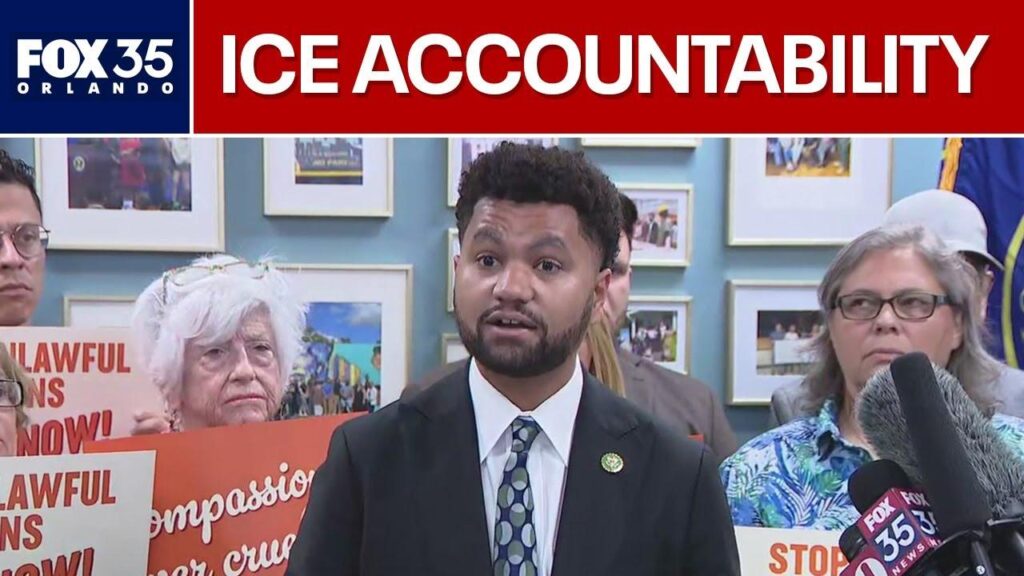Enhancing Accountability and Transparency in ICE and DHS: A Call for Urgent Reform
Transparency Deficits and Their Consequences on Public Confidence
The operations of U.S. Immigration and Customs Enforcement (ICE) and the Department of Homeland Security (DHS) have long been shrouded in secrecy, significantly diminishing public confidence. When vital information is withheld or only partially shared, it breeds mistrust and skepticism rather than fostering assurance. This opacity not only hampers effective oversight but also contradicts the democratic values these agencies are meant to uphold.
Several critical transparency challenges contribute to growing public unease:
- Prolonged delays in releasing details about enforcement activities
- Limited disclosure regarding detainee welfare and monitoring procedures
- Unclear communication about policy shifts and their broader effects
| Transparency Challenge | Effect on Public Perception |
|---|---|
| Concealment of detainee information | Fuels fear and misinformation |
| Minimal engagement with affected communities | Reduces cooperation and trust |
| Non-transparent disciplinary actions | Raises fears of unchecked misconduct |
Unveiling Systemic Issues in Detention Facilities
Extensive investigations and oversight reports over the years have exposed persistent shortcomings in detention centers managed by ICE and DHS. Problems such as inadequate healthcare, overcrowding, and violations of basic human rights continue unabated despite numerous alerts. These systemic deficiencies are compounded by insufficient transparency and weak accountability frameworks, which obstruct efforts to protect detainees’ well-being. Such chronic neglect raises serious concerns about leadership priorities and the effectiveness of internal monitoring systems designed to safeguard vulnerable individuals.
Recent statistics from 2023 illustrate the severity of these issues across multiple detention sites:
| Issue | Number of Reported Cases (2023) | Scope of Impact |
|---|---|---|
| Medical Neglect | 425 | Over 20 Facilities |
| Use of Solitary Confinement | 310 | 15 Facilities |
| Severe Overcrowding (150% Capacity) | 15 Facilities | Nationwide |
- Redefining accountability through independent audits and external case evaluations is essential.
- Comprehensive structural reforms must be implemented to eliminate systemic inequities and prevent further mistreatment.
- Incorporating detainees’ perspectives into policy development ensures humane treatment becomes standard practice.
Establishing Independent Oversight and Robust Accountability Frameworks
Growing evidence highlights the urgent need for impartial oversight bodies within ICE and DHS. Without independent scrutiny, patterns of abuse and policy breaches risk remaining hidden, further eroding public trust. Advocates increasingly demand the creation of a civilian review board empowered with subpoena authority and staffed by legal professionals, human rights defenders, and former law enforcement personnel. This entity should have the mandate to investigate complaints, enforce transparent reporting, and propose reforms free from political influence.
To reinforce accountability, the following enforceable standards are critical:
- Regular public disclosures detailing detention conditions and incidents involving use of force
- Uniform disciplinary protocols addressing violations of civil rights and operational procedures
- Frequent audits with findings accessible to the public
- Enhanced training programs focusing on ethics and cultural sensitivity
| Accountability Measure | Objective | Anticipated Result |
|---|---|---|
| Independent Oversight Board | Conduct unbiased investigations | Decrease in misconduct cases |
| Public Reporting | Enhance transparency | Boost public confidence |
| Disciplinary Standards | Ensure clear accountability | Consistent enforcement of rules |
| Training Reforms | Promote ethical behavior | Improved relations with communities |
Policy Innovations to Uphold Human Rights within ICE and DHS
Recent analyses have brought to light entrenched challenges within ICE and DHS, underscoring the necessity for sweeping policy reforms aimed at protecting the fundamental rights of detainees and immigrants. Central to these reforms is the implementation of transparent oversight systems that guarantee accountability at all organizational levels. This includes the establishment of independent review panels authorized to investigate grievances, enforce corrective measures, and recommend policy changes without bureaucratic obstruction. Furthermore, comprehensive human rights and ethics training for all personnel involved in detention and enforcement is vital to shift the institutional ethos from punitive to protective.
Equally critical is the enforcement of clear standards for detention environments and treatment protocols, supported by regular, unannounced inspections conducted by third-party organizations. Key reform areas include:
- Guaranteed access to legal representation and language interpretation services for detainees
- Promotion of alternatives to detention, emphasizing community-based supervision programs
- Comprehensive data transparency regarding detention statistics, use-of-force events, and complaint resolutions
| Reform Focus | Suggested Policy Amendment | Projected Benefit |
|---|---|---|
| Oversight | Creation of independent review boards | Heightened accountability |
| Training | Mandatory human rights education | Enhanced staff conduct |
| Detention Conditions | Unannounced third-party inspections | Improved living conditions |
| Legal Access | Guaranteed counsel and interpreter services | Fairer legal proceedings |
| Alternatives to Detention | Community-based program implementation | Lower detention rates |
| Transparency | Regular public reporting of key data | Strengthened public trust |
Conclusion: Advancing Justice and Accountability in Immigration Enforcement
As demands for reform and openness intensify, the necessity for stringent accountability within ICE and DHS becomes increasingly clear. Only through comprehensive oversight and substantive policy changes can these agencies regain public trust and faithfully execute their responsibilities. Moving forward requires a collaborative effort among lawmakers, watchdog organizations, and communities to prioritize justice and human rights in immigration enforcement. The moment to act decisively on accountability is now.













